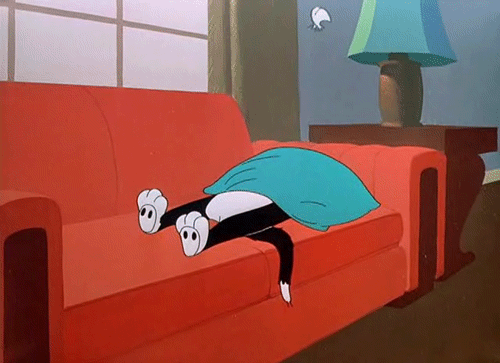Naps are one of my favorite things. They have the ability to improve critical thinking skills, boost creativity, lower stress levels, and even provide you with more energy. Nothing beats coming home after a long day of classes or work and being able to take a nap before starting my homework or other tasks.
While napping is great, all naps are not the same. This means different naps have different benefits. It is important to learn about the four main types of naps, so you know which nap is going to be the most beneficial for you in that moment:
1. The power nap (10-20 minutes)

The power nap is a good idea for anyone that just needs a brief moment of shut-eye. It can help with minor cases of fatigue and can also improve your intellectual performance. Since this nap is so short, the benefits of the nap do tend to wear off about two hours afterward.
2. The 30-minute nap

This nap gives you similar benefits to the power nap, but just a little longer of a rest. Something to keep in mind is if you decide to take a 30-minute nap, be sure to wake up as close to the 30-minute mark as possible. Doing so will prevent you from feeling tired and groggy shortly after. It will also prevent you from having difficulty falling asleep later on.
3. The 60-minute nap

This nap is a good one if you still have a long day's work ahead of you. By taking a 60-minute nap, you will most likely feel refreshed, recharged, and ready to tackle your next task. It can also be a good nap in between studying because it will help you remember facts and images, as well as improve your overall alertness for roughly 10 more hours.
4. The refresher (90 minutes)

The holy grail of naps! When you take a 90-minute nap, your body can actually go through every sleep stage. Going through all sleep stages will provide you with a more restful nap and give you a similar feeling to getting a full night's sleep.
This nap will improve your overall memory and refresh your mind, so it is another ideal nap if you are going to be up all night studying or have a time-consuming task to work on. Even though the 90-minute nap may make you feel well-rested, it should not be your substitute for a good 7-9 hours of sleep at night.
All in all, naps are a wonderful thing. They can be a real lifesaver when we are drained because they can help us plow through that exhaustion. Next time before you take a nap, think about what you will be doing and what you expect to accomplish after your nap in order to determine which nap will be the most beneficial for you!
**Please note that naps are not for everyone. The information about naps in this article, while considered the common experience, is not consistent among every person. Please keep in mind that napping can affect circadian rhythm of the body and should be taken to account, especially with individuals who may be suffering from depression or insomnia, as napping can make falling asleep at night significantly harder.



















